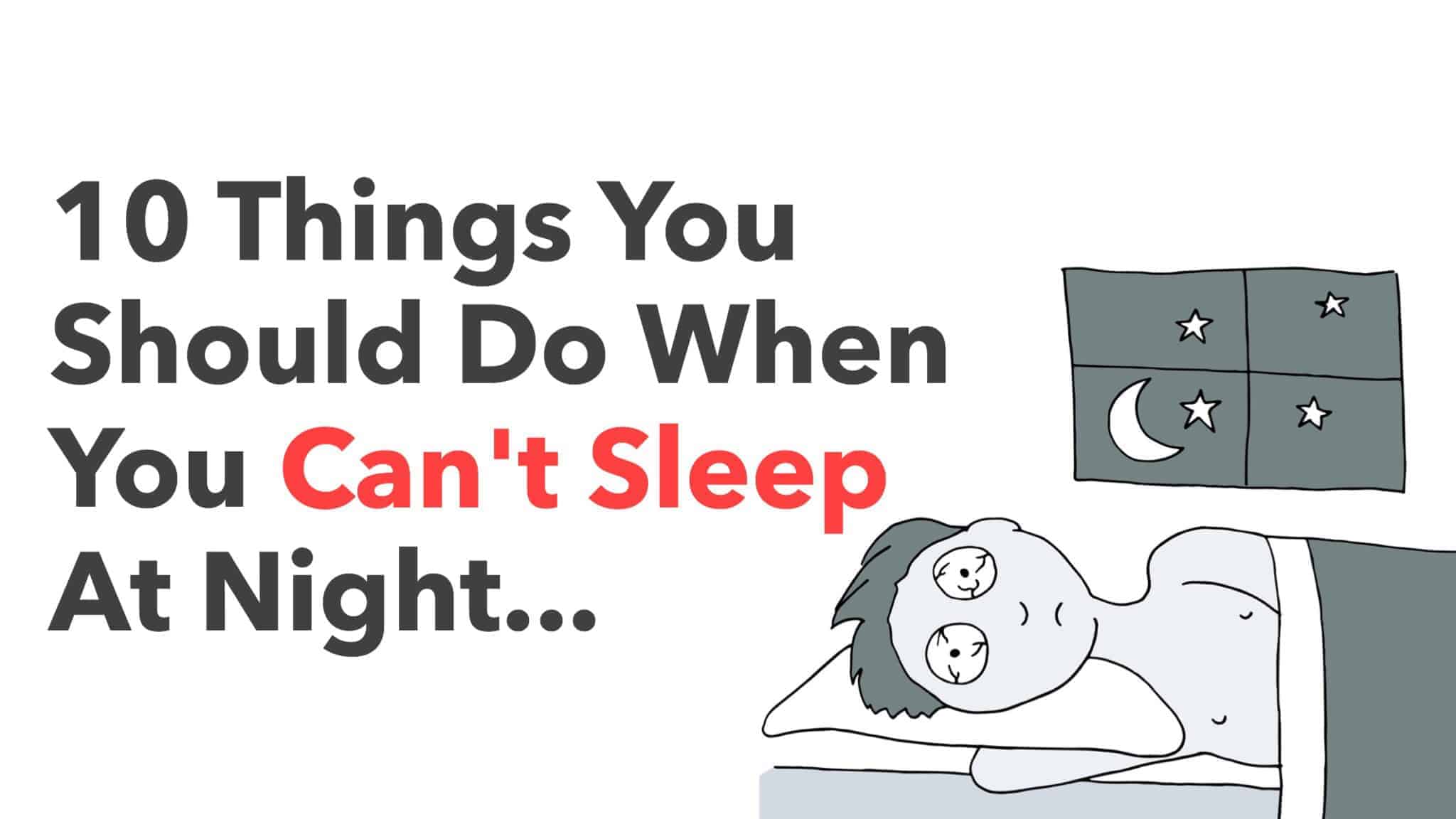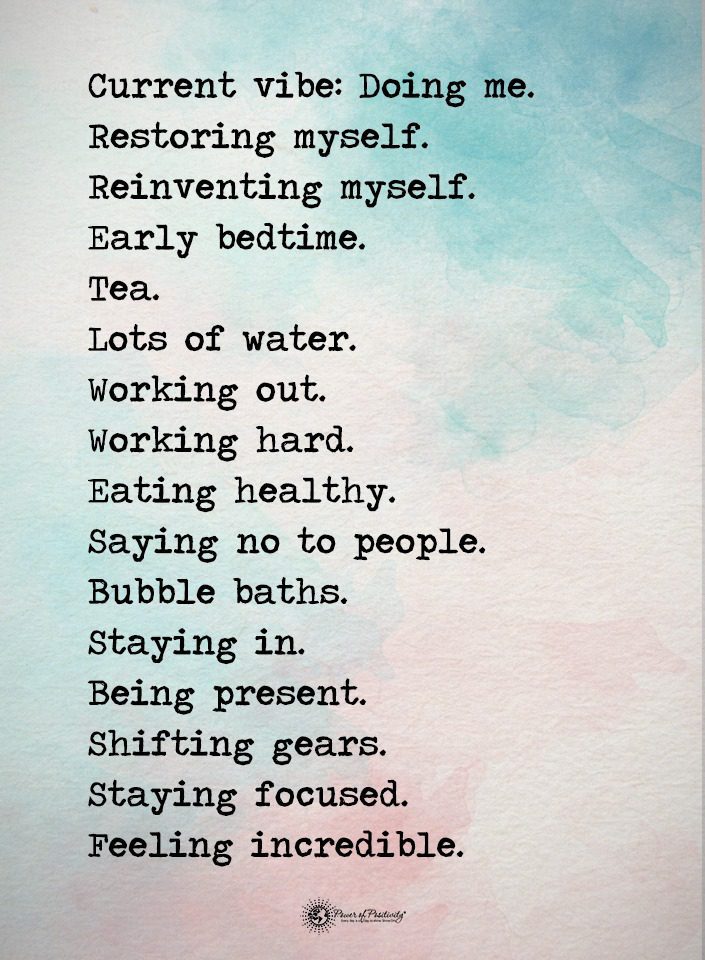Did you know that sleep professionals have a term for healthy habits before bedtime each night? Well, they do–and they call it sleep hygiene.
The National Sleep Foundation (NSF) defines sleep hygiene as the following:
“A variety of different practices and habits that are necessary to have good nighttime sleep quality and full daytime alertness.”
Similar to how we all benefit or are hindered by our daily routines. Whether it is work, morning routine, or time management, we are all affected – whether we realize it or not – by our sleep hygiene or lack thereof.
21 Things You Should Do When You Can’t Sleep At Night
Let’s look at some things that can improve our habits and get more rest.
1. Lay off the stimulants before night falls
Stimulants come in various forms, including caffeine, medications, and nicotine–caffeine is the most common. Caffeine, once in the body, lasts for around 12 hours. 12 hours!
The good news is (and it is good news) that we can safely consume up to three 8-ounce cups of coffee per day but no more than six cups.
Also, watch your nicotine and stimulant medication intake, particularly the hours of consumption.
2. Tune your environment
Do whatever it takes: buy blackout curtains, eyeshades, earplugs, fans – anything to rectify a poor sleeping environment. Those who’ve lived in a crowded apartment complex can probably relate.
Other tips: keep the bedroom at a cool temperature, check the quality of your mattress, and use comfy pillows. Turn off bright lights from anywhere and everywhere.
3. Limit napping
We all love naps.
But napping, incredible as it is, can hinder regular sleep by disrupting our normal sleep/wake cycle (i.e., circadian rhythm). On the other hand, finding that “sweet spot” – which the NSF defines as between twenty and thirty minutes – can improve alertness, mood, and performance.
4. Get a bit of exercise
Exercise is recommended for just about every ailment in existence. Insomnia, or difficulty falling asleep, is no different.
Even working out for a brief ten minutes can improve our sleep quality. The NSF recommends aerobic exercise to achieve this result – a brisk walk, bike ride, or light jog are all excellent options.
One last thing: intensive workouts should occur during daytime hours. Vigorous exercise four hours or less before sleep can diminish sleep quality.
5. Get enough light
Light preferably from the sun, not the desk lamp. Many of us work in an office environment for 8+ hours a day. By the time we clock out, the sun is often on its way down.
Try getting outside for one of your breaks or eating lunch outside the cafeteria. Use that time to get in a brisk walk out in the sunshine.
6. Know which foods to stay away from
This is especially true for foods that may promote indigestion and heartburn. Foods that fit this description include citrus, carbonated drinks, heavy or rich foods, and fried foods.
Light dishes, consisting of fresh vegetables and lean cuts of meat, are excellent for promoting sleep.
7. Have a regular, relaxing bedtime routine
A regular nighttime routine prepares the body for bed. Routines that fit this description are light on brain stimulation, as in a TV or computer marathon. It is also wise to refrain from activities that evoke negative emotions.
Instead, try reading a hardcover or softcover book (no tablets), relaxing with a warm bath or shower, or doing light stretches, meditation, or yoga.
8. Lay off the alcohol at night
The sleep cycle after consuming alcohol looks like this: it helps knock you out, alcohol levels drop (rate: about one drink per hour), REM sleep quality decreases, non-REM sleep increases, and you wake up.
Here’s the problem with this cycle. Quality REM sleep is needed for proper cognitive function – which suffers from the effects of alcohol. As alcohol levels drop, the body’s internal state begins to “awaken,” although the person is technically still asleep.
This is why we feel groggy and sluggish throughout the following day. Please do yourself a favor and limit alcohol intake during the week or save it for the weekends.
9. Don’t rule out the “small stuff”
Certain supplements and vitamins can disrupt sleep, as can certain oral contraceptives and hypertension pills.
Chronic, minor pains are tempting to disregard but don’t underestimate any pain’s ability to rob you of a good night’s sleep. Consider taking some NSAID, which is well-tolerated more often than not.
Do you have pets in your bed? Does your partner snore or move around, waking you up? Consider your environment and any potential culprits and develop a practical solution.
10. Follow up with your doctor
In rare cases, poor sleep quality could result from an underlying disorder. If this state persists despite making necessary changes to your lifestyle, it’s best to be safe and follow up with a medical professional.
11. Say goodbye to your worries
Getting rid of your fears is easier said than done. Of course, you can’t eliminate all your fears. Still, it’s essential to learn how to manage them so they don’t interfere with your ability to sleep at night. Try these things to say goodbye to your worries so you can sleep at night.
- Try praying: Prayer can help you relax and relieve your day’s worries. Ask God to help you trust him. Pray about specific concerns of your day. Giving God your worry lets you let go of them so you feel less burdened.
- Try journaling: Writing about your worries won’t solve them, but you will feel less beaten down by them, so you can let go of them.
- Make a list: If you have a lot going on, creating lists of what you need to do may be helpful. Once it’s on paper, you don’t need to worry about it anymore.
12. Take a magnesium supplement
Lack of sleep is harmful to your health. Insomnia can lead to health problems, such as:
- Heart problems
- Diabetes
- Stroke
- Depression
- Obesity
- Lower sex drive
- Weak immune system
Magnesium is a helpful sleep aid. Your biological clock is more consistent when melatonin is in your body. It also lowers your mental stress. It’s best to take these supplements before your bedtime to feel sleepy.
13. Relax with a bath or shower at night
Another way to help yourself fall asleep is to take a warm bath or shower before bedtime. A warm bath relaxes your muscles, and aches and pains fade away. As you relax, you’ll feel calm and peaceful. Some suggest a warm shower is the best, but it’s really up to you.
14. Listen to bacon as you fall asleep at night
Yes, you heard right. Listening to the sound of bacon frying will put you to sleep. But don’t bother getting out the frying pan. People say listening to a recording of sizzling bacon puts them to sleep. Researchers say this calming sound is associated with positive feelings that encourage relaxation and sleepiness.
16. Eat some cheese
Cheese contains tryptophan, a natural sleeping aid. Your body uses tryptophan to make melatonin and serotonin. Melatonin regulates your sleep cycle. Serotonin regulates your sleep, mood, and appetite. If you can’t sleep, try munching on some cheese. Choose low-fat cheese, such as cottage cheese. A high-fat cheese will interfere with your sleep.
17. Check your medications
If you take medication, check for side effects to see if insomnia is one. Here are just a few drugs that cause insomnia. If you take one of these or any drug, you must understand the side effects.
- Alpha-blockers: Alpha-blockers are blood pressure medications. It’s linked to decreased REM (rapid eye movement) sleep. This is the part of your sleep when you dream. Lack of REM sleep causes memory problems.
- Beta-blockers: This blood pressure medication may cause you to wake up at night. Some people have nightmares that interrupt their sleep. Beta-blockers inhibit your body’s melatonin secretion, which helps you fall asleep.
- Corticosteroid: This medication is used for various physical problems. It is anti-inflammatory. Corticosteroids stress the body, which can over-stimulate the mind, making sleep difficult.
- Levothyroxine is used to treat your underactive thyroid gland (hypothyroidism). It controls your metabolism and energy levels. Too much of the medication messes with your ability to sleep. If you’re on levothyroxine, tell your doctor if you have insomnia.
18. Try a brain trick
If you can’t fall asleep after 20 minutes, get up and find a relaxing activity like reading. Then go back to bed to see if you can fall asleep. This little exercise breaks the cycle and tricks your brain into getting sleepy.
19. Experiment with essential oils
Try essential oil scents to help you relax and fall asleep at night. The best sleep-enhancing essential oils include:
- Lavender oil: Lavender infuses your mind and body with peacefulness. Sprinkle a few drops of lavender essential oil on your pillow to relax you. Lavender lowers your heart rate and blood pressure.
- Chamomile oil: Chamomile is used in herbal teas. Before bedtime, you can diffuse chamomile essential oils in your bedroom to help you relax as you drift off to sleep.
- Sandalwood oil: Sandalwood is one of the most effective sleep essential oils. It promotes peaceful sleep. It can also help even out your moods to fall asleep easier.
20. Listen to a story at night
It worked when you were a kid, so why not now? Listening to a soothing story helps your mind and body get sleepy. Of course, there’s an app for that. Check it out. Or, if you’d drift to sleep listening to an audiobook, that’s an option. It’s not the best idea to fall asleep with your iPhone, but this might be your solution if you’re having trouble sleeping and nothing else works.
21. Don’t fall asleep until night
If you can’t sleep, then stay awake. One study found that individuals with insomnia fell asleep faster when told not to fall asleep. This method is called Paradoxical Intention. When you lie in bed with your eyes open, you lose your anxiety about falling asleep. This helps you relax, and you will eventually fall asleep.
Final Thoughts on Actions to Take When You Can’t Sleep at Night
Maybe you’ve tried everything to fall asleep at night. If nothing else works, why not try these ideas? They are tried-and-true methods that people swear by. Some suggestions are unorthodox, but they help individuals fall asleep. So, try them to see if they work for you.




















